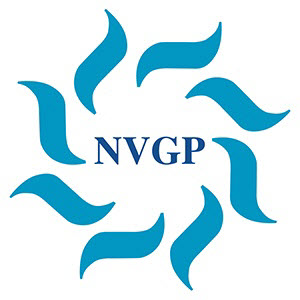A Meta-analysis of adjuvant group-interventions in psychiatric care for patients with bipolar disorders
Macheiner, T., Skavatzos, A., Pilz, R., & Reininghaus, E.Z. (2017). A Meta-analysis of adjuvant group-interventions in psychiatric care for patients with bipolar disorders. Journal of Affective Disorders. 222, 28-31
Verslag: Mark van der Meer
Abstract
Background: Bipolar disorders are ranked amongst the top ten causes of global disability and cause high health care costs. Previous studies have showed that mood stabilizing drug therapy combined with psychological treatments lead to significantly fewer relapses and a reduction in hospitalization rates. However, there is a wide spectrum of psychosocial intervention methods for individuals and groups which have been insufficiently examined on a scientific basis.
Methods: Studies published between 2003 and 2015 on different types of adjuvant psychosocial group interventions in the MESH database were reviewed and evaluated for their efficacy on patients with bipolar disorder related to the relapse ratio by a meta-analysis.
Results: The meta-analysis included 24 intervention groups and showed that 75% of treated groups under medication and psychosocial therapy had a lower risk of a relapse than the control groups which only received medication therapy.
Limitations: The meta-analysis includes a number of trials with participants in different phases of disease course and study designs, the number of studies in each analyzed intervention group was not balanced and many studies focused on recovery and recurrence of episodes, precluding identification of the impact on subsyndromal symptoms Conclusions: Adjuvant psychosocial interventions seem to be indispensable for patients, their relations as well as for saving costs in the health care system. Nevertheless, an evaluation of effectiveness and impact factors of different psychosocial intervention methods needs further research.
Wat betekent dit voor de groepspsychotherapie?
Een meta-analyse van onderzoeken tussen 2003 en 2015 om te onderbouwen dat bij mensen met een bipolaire stoornis enkel het voorschrijven van medicatie niet voldoende is. De onderzoekers kozen ervoor om te kijken naar alle mogelijke groepsinterventies omdat deze verschillen van individuele interventies. Men wilde niet twee interventietypes mengen. Inhoudelijk wordt er in deze studie niet ingegaan op de groepsinterventies of groepstherapie. Kort worden de verschillende groepsbehandelingen genoemd, te weten psycho-educatieve groep, cognitieve gedragstherapie, familie-gerichte behandeling en interpersoonlijke en sociale ritme therapie. Deze groepen bestaan minimaal uit 15 deelnemers en de duur van de behandelingen bestaat uit een zeer brede range van 9 en 84 weken. Geconcludeerd wordt dat 85% van alle behandelde patiënten een lager risico hebben op een terugval. De onderzoekers zien psycho-educatie en cognitieve gedragstherapie in een groep als meest effectieve keuzes van behandeling.
| Relevantie voor richtlijnen voor depressie | O O O O O |
| Relevantie voor onderzoek | O O O O O |
| Relevantie voor groepsbehandeling | O O O O O |
| Relevantie voor teamcoaching | O O O O O |
| Relevantie voor groepsdynamicaopleiding | O O O O O |
| Relevantie voor groepstherapieopleiding | O O O O O |
| Relevantie voor KP opleiding/Psychiatrie opleiding | O O O O O |
